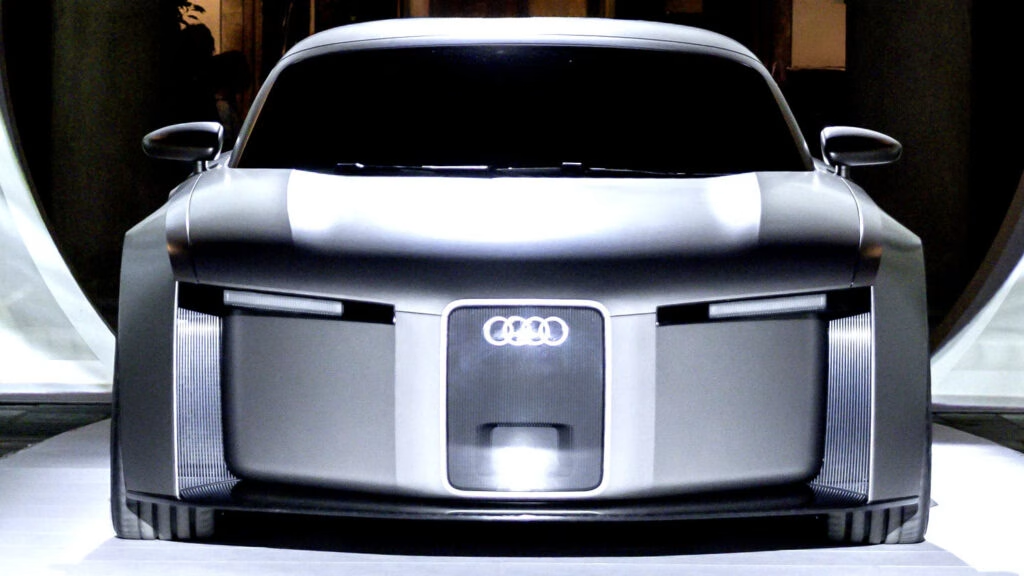How soon is Audi’s electric TT successor arriving?
Audi isn’t wasting any time. The brand’s all-electric successor to the iconic TT is set to hit the market just 30 months after getting the official green light. That’s a dramatic shift for Audi, a company usually known for its methodical, measured approach to new models. What’s driving this urgency? In a word: competition. Chinese automakers have been rewriting the rulebook on development speed, and Audi’s leadership is determined not to get left behind. According to CEO Gernot Dollner, this “China speed” is nothing short of revolutionary for Ingolstadt. If all goes to plan, you’ll see this new sports car on the road by 2027—one of the fastest turnarounds in Audi’s history.
Will the new electric Audi sports car just be a Porsche in disguise?
It’s a fair question, especially since the car will share a lot of its underpinnings with Porsche’s upcoming electric Boxster and Cayman. All three will ride on a tweaked version of the PPE platform, a joint Audi-Porsche effort. But here’s where things get interesting: while the technical DNA overlaps, the personalities won’t. Volkswagen Group boss Oliver Blume has been adamant that each brand’s identity remains distinct. Think of it like siblings who share a family resemblance but have totally different styles and interests. For Audi, that means a focus on clean, minimalist design and a driving experience that’s unmistakably its own.
What’s unique about the battery and handling setup?
Most electric cars put their battery packs under the floor. Not this one. Audi and Porsche are positioning the batteries behind the seats, mimicking the layout of classic mid-engined sports cars. Why does this matter? It’s all about balance. By keeping the mass closer to the center, the car should feel more agile and responsive—qualities that enthusiasts crave. It’s a clever nod to the TT’s legacy, but with a modern electric twist. The result? Pure magic. Expect handling that’s sharp, stable, and confidence-inspiring, even if you’re pushing it on a winding backroad.
How is Audi making sure this EV is actually fun to drive?
Audi’s technical chief, Geoffrey Bouqout, isn’t mincing words: the goal is pure driving enjoyment. Forget about overloading the cabin with screens and distractions. Instead, the focus is on delivering only the information you need, when you need it, so you can stay connected to the road. Bouqout also made it clear that they’re not just copying the old TT’s handling or trying to fake excitement with artificial gimmicks. Instead, they’re leveraging the instant torque and low center of gravity that electric powertrains naturally offer. The aim? Acceleration that pins you to your seat, steering that feels alive in your hands, and a sense of stability that encourages you to push a little harder.
Can an electric sports car really deliver thrills without an engine?
Skeptics, take note: the absence of an engine doesn’t mean the absence of excitement. Blume challenges doubters to simply get behind the wheel. The sensation of being close to the road, the immediacy of the steering, and the raw feedback from the chassis all combine to create a genuinely engaging experience. Sure, you won’t get the rumble of a turbocharged five-cylinder, but you’ll gain a new kind of connection—one that’s quieter, but no less visceral. Early test drives of similar electric sports cars have shown that the lack of engine noise can actually heighten your awareness of everything else: the grip, the road texture, the subtle shifts in balance.
Will the production car really look like the Concept C?
Design fans, rejoice. Audi insiders say the production version will stay remarkably true to the Concept C, with about 90 percent of the show car’s styling making the jump to the road. That means bold lines, a low-slung stance, and a presence that’s unmistakably sporty. It’s a refreshing commitment in an era when concept cars often get watered down before they reach showrooms. If you loved the Concept C’s look, chances are you’ll be just as smitten with the real thing.
What does this mean for the future of compact sports cars?
Audi’s rapid-fire development of the TT’s electric successor signals a new era for compact sports cars. The blend of shared technology and distinct brand character could set a template for other automakers navigating the EV transition. And with battery tech improving—BloombergNEF reports battery pack prices dropped 14 percent in 2023 alone—the performance and affordability gap between electric and gas-powered sports cars is closing fast. Expect more brands to follow Audi’s lead, leveraging group resources while doubling down on what makes their cars unique.
The big takeaway? Reinventing an icon like the TT isn’t about perfection—it’s about smarter adjustments. Start with one change this week, and you’ll likely spot the difference by month’s end.

